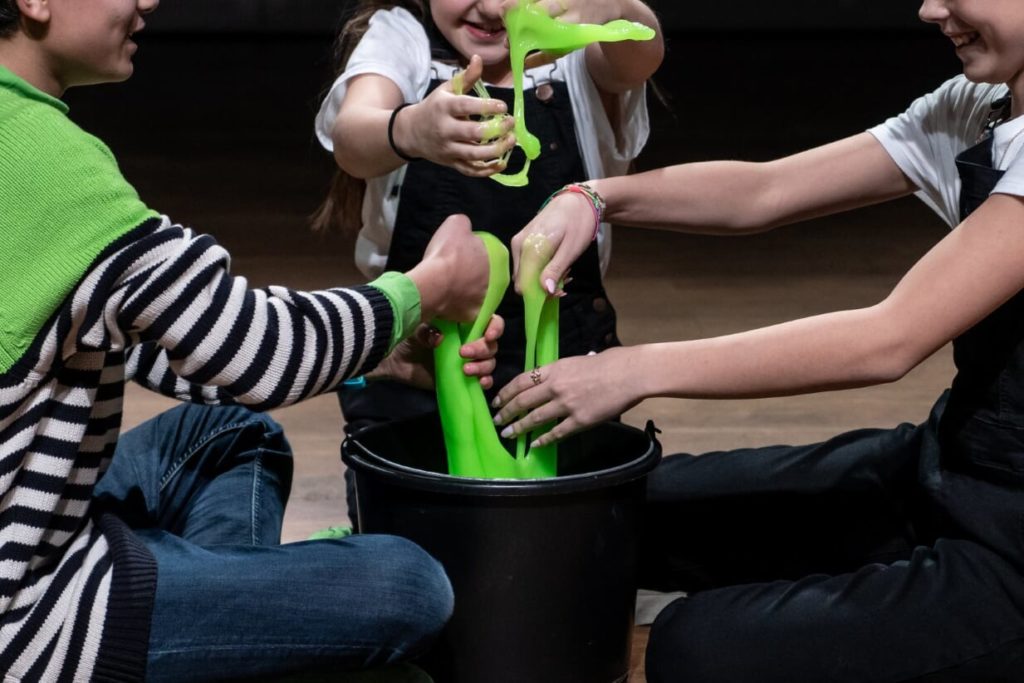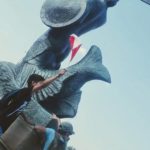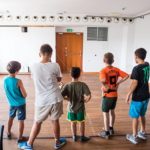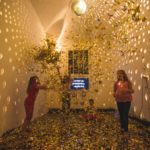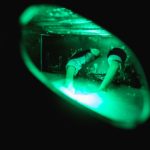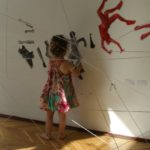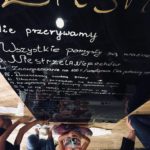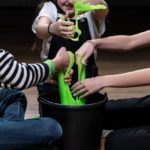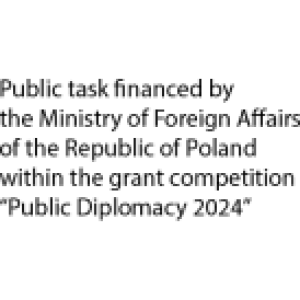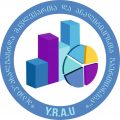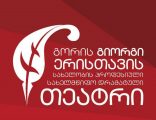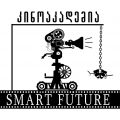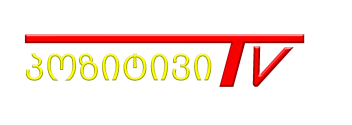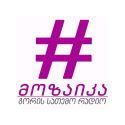Socio-artistic Practices as an Educational Tool.
Meeting with Dr. Agata Siwiak
The lecture will present the strategies of artistic and social work aimed at building democratic relations between adults, children and youth.
The case study will be a program curated by Agata Siwiak as part of the Biennale Warszawa in 2018-2019 – RePrezentacje. New education.
The aim of the project was to give the floor to various groups of children and young people, regardless of their origin, social and economic status, nationality, age and health condition. Outstanding Polish artists – incl. director Anna Smolar, playwright Michał Buszewicz, cinematographer Rafał Paradowski, designer Agata Kiedrowicz, architect Maciej Siuda, choreographer Kaya Kołodziejczyk – together with young people, they co-created artistic works in an orphanage, a center for refugees and their children, at a school for youth with intellectual disabilities and in the community community center. The work on the project was guided by the idea of the ethics of care and the related category of empathy, promoted by Carol Gilligan, a researcher and feminist activist. On the other hand, the inspiration for the actions was the thought of Janusz Korczak, who was one of the world’s precursors of democratic practices in the educational process.
As part of the RePrezentacje program. New Education was created a theater performance, choreographic installation, architectural design, concert. The final activity was the creation of an Endless Space, which is a democratic place for meetings, games, relaxation and debates, and at the same time a performative archive and an exhibition of projects created by young and adult artists as part of the program.
The meeting will be translated in to Georgian
Meeting will be on zoom platform. Registration and information by email : contact@artwithoutborder.pl
26th November 2020
Time:
Georgia: 5,30 p.m (GMT+4/Georgia time)
Poland:14.30 p.m (CET/Warsaw time)
Agata Siwiak
Curator and producer of theater and interdisciplinary projects. Assistant professor at the Institute of Theater and Media Art at AMU, where she created and runs a specialization for curators and producers of performing arts. As a curator, she works on the border of various media, critical practice and socially engaged art – she carried out her projects in prestigious public cultural institutions, but also in orphanages, a nursing home, and in a remand center. Since 2016, she has been the artistic director of the Bliscy Nieznajomi festival at the Polski Theater in Poznań. In the years 2018-2019, she implemented the original project RePrezentacje: New Education as part of the Biennale Warszawa, for which she received the 1st prize in the “Artistic institutions and museums” category as part of the Warsaw Artistic Education Award granted by the City of Warsaw. In 2012-17, she co-hosted a theater collective in the Orphanage in Szamocin with Michał Borczuch, Krzysztof Zarzecki and Dorota Nawrot. In 2015, together with Grzegorz Niziołek, she curated a critical, “disappearing” anti-institution and realized her original series Interventions at the Polish Theater in Bydgoszcz. The author and curator of the social and artistic program Wielkopolska: Revolutions (2012-14) organized as part of the Self-government of the Wielkopolska Region, for which she was nominated for the “Polityka Passport” in the “Theater” category. She was also the curator of the Trickster 2011 project – a performative program of the European Culture Congress in Wrocław. In 2008 and 2009, she was the artistic director of the interdisciplinary Festival of Dialogue of Four Cultures in Łódź, dedicated to the idea of multiculturalism (with Grzegorz Niziołek). In 2004–07 she was associated with the National Stary Theater in Krakow, where she headed the baz @ rt festival and led her own international projects. In 2002–04 she worked at the Polski Theater in Wrocław.

